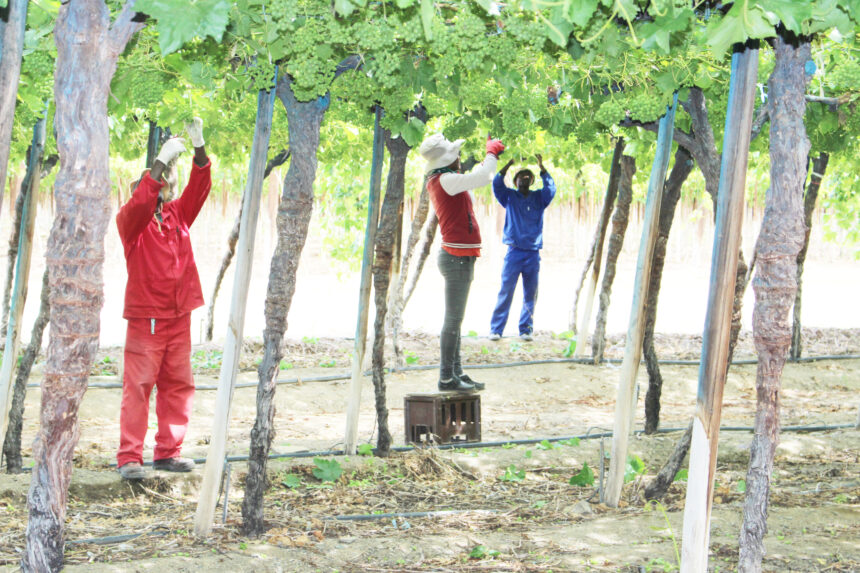Lahja Nashuuta
Swapo parliamentarian Martha Itope has called for immediate government intervention to revive the Orange River Irrigation Project (ORIP), and improve the dire living conditions of farmworkers.
Situated in the //Kharas region, Karasburg West constituency, Noordoewer and Aussenkehr are known for producing high-value crops such as grapes, dates, citrus and vegetables. Despite this, communities in these areas continue to face severe socio-economic challenges, the lawmaker said.
“Aussenkehr is a billion-dollar industry, yet its workers live in harsh and unacceptable conditions. Access to clean water and basic sanitation remains a daily struggle. Residents often draw water directly from the river, which is frequently contaminated,” she said.
Itope, while addressing Parliament last week, also highlighted the dire state of healthcare in the area. “The local clinic is severely understaffed, compromising the quality of care and leading to poor health outcomes,” she added.
She said frequent fire outbreaks, largely due to the flammable reeds used in the construction of informal homes, continue to threaten lives and property. The absence of a local fire station further exacerbates the situation. “These issues reflect broader systemic neglect and raise serious questions about corporate accountability in the grape industry,” said Itope. “The government must step in. This is long-overdue.”
She urged authorities to improve living conditions and provide fire brigade vehicles and proper sanitation infrastructure to protect and support the Aussenkehr community.
Revival
Itope called for the revitalisation of ORIP, a 520-hectare government-owned farm under the Ministry of Agriculture, Water and Land Reform. Located 55 kilometres west of Noordoewer, the project has historically produced grapes and dates and holds great potential for vegetable farming.
Currently, only 166 hectares are under cultivation: 86 for commercial use and 80 managed by 20 small-scale farmers operating on four-hectare plots each. Originally trained under a three-year programme facilitated by the Namibian Development Corporation in 2001, these farmers were promised 99-year lease agreements upon completion of their training, a promise that remains unfulfilled to this day.
All grapevines on the farm were uprooted four years ago due to declining fertility and low market demand for existing cultivars such as Sultana (Thompson), Sugraone and Flame.
Itope therefore proposed a comprehensive plan to rejuvenate the project and boost food security and job creation.
She called for resolved lease agreements, stating that small-scale farmers deserve legal certainty over the land they’ve worked for decades. The ministry must finalise the promised long-term lease agreements.
“Farmers urgently require financial support to procure essential inputs like fertilisers, chemicals and high-quality grape seedlings.”


